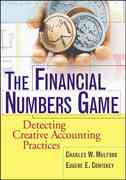Question
Joe Kang is an owner and audit partner for Han, Kang & Lee, LLC. As the audit on Frost Systems was reaching its concluding stages
Joe Kang is an owner and audit partner for Han, Kang & Lee, LLC. As the audit on Frost Systems was reaching its concluding stages on January 15, 2019, Kang met with Kate Boller, the CFO, to discuss the inventory measurement of one its highly valued products as of the balance-sheet date, December 31, 2018. Kang told Boller that a write-down of 20 percent had to be made because the net realizable value of the inventory on December 31 was 20 percent less than the original cost recorded on its books. That meant the earnings for the year would be reduced by $2 million and the client would show a loss for the year. In a heated exchange, Boller demanded Kang use the value at January 15, 2019, which reflects a full recovery of the "proposed" 20 percent write down. Boller reminded Kang the financial statement issuance date would be January 31 so the recovery value is acceptable under GAAP. Besides, Boller said, the previous auditors had allowed her to do a similar thing. She went on to explain that the market value for this product was known to be volatile and a smoothing effect was justified in the accounting procedures.
Kang was under a great deal of pressure from the other two partners of the firm to keep Boller happy. It seems Frost Systems was about to provide hosting services for Boller and other management advisory services. The hosting services include providing electronic security and back-up services for the attest client's data and records. The revenue from these arrangements could turn out to be twice the audit fees. Kang called a meeting of the other partners. He was concerned that the final vote would be 2-1 to accept the client's interpretation of the accounting rules and record the inventory at the January 15 value.
The following are the rules for recognizing Subsequent Event values in accounting under the auditing standards, PCAOB AU 560.
An independent auditor's report ordinarily is issued in connection with historical financial statements that purport to present financial position at a stated date and results of operations and cash flows for a period ended on that date. However, events or transactions sometimes occur subsequent to the balance-sheet date, but prior to the issuance of the financial statements, that have a material effect on the financial statements and therefore require adjustment or disclosure in the statements. These occurrences hereinafter are referred to as "subsequent events."
1. Did Boller apply the correct interpretation of GAAP rules for inventory valuation? What about PCAOB rules for subsequent events? What about the "smoothing effect" statement by Boller? Is this a valid basis for valuation? Explain.
2. Would independence be impaired if the firm were offered, and accepted, the hosting services? Consider whether any threats to independence would exist and, if so, how they might be reduced to an acceptable level.
Step by Step Solution
There are 3 Steps involved in it
Step: 1

Get Instant Access to Expert-Tailored Solutions
See step-by-step solutions with expert insights and AI powered tools for academic success
Step: 2

Step: 3

Ace Your Homework with AI
Get the answers you need in no time with our AI-driven, step-by-step assistance
Get Started


